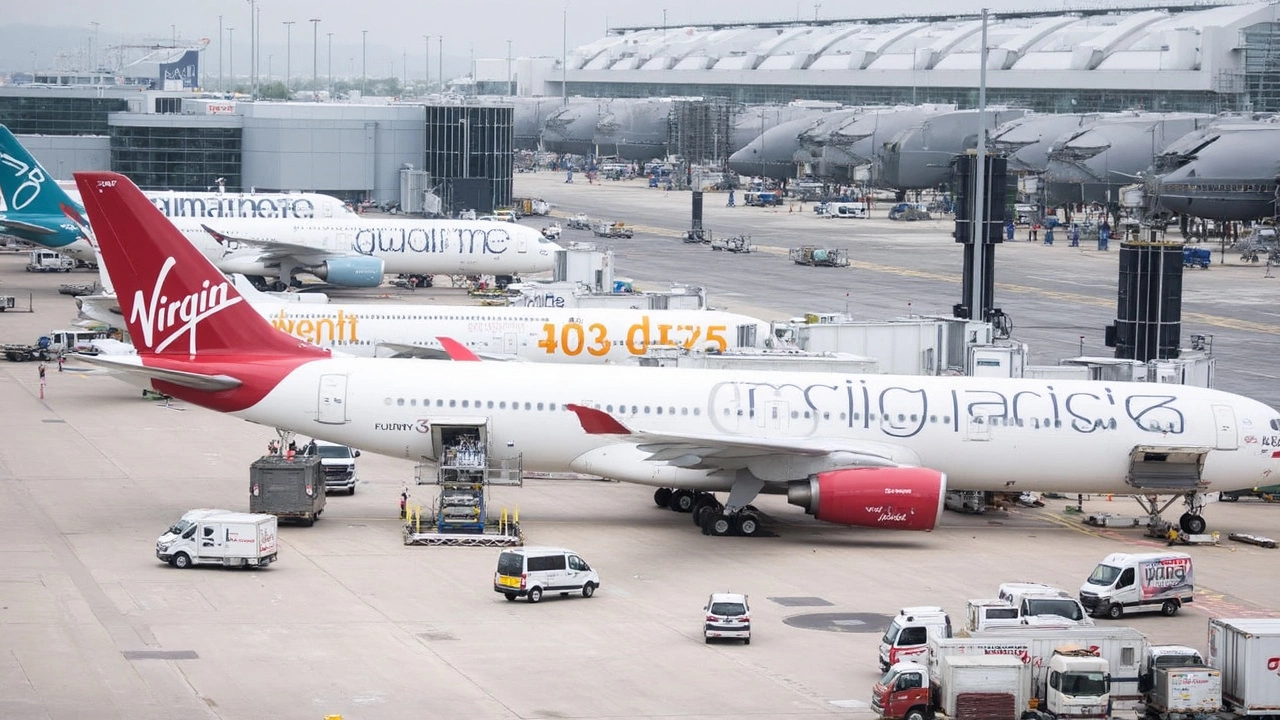Flight Delays – What’s Happening and How to Deal with Them
Ever looked at the board, saw your flight pushed back an hour, then two, and wondered if it will ever leave? You’re not alone. Flight delays are a daily headache for millions of travelers, and they cost airlines billions each year. The good news is that most delays follow predictable patterns, and you can take steps to reduce the impact on your plans and wallet.
Why Flights Get Delayed
Weather tops the list. Bad storms, fog, or icy runways force pilots to wait for safer conditions. Even a tiny cloud can disrupt a busy hub like Heathrow, where a single delayed aircraft creates a domino effect on dozens of connections. Next up is air‑traffic control. When the sky gets too crowded, controllers have to space out take‑offs and landings, especially during peak travel times.
Technical glitches also play a big part. A faulty sensor, a mis‑firing engine, or a software glitch can ground a plane for hours while engineers fix the issue. Airlines sometimes delay a flight on purpose to keep crews within legal duty limits – it’s better to wait than to risk a safety breach.
Finally, operational issues such as late arriving aircraft, crew shortages, or security delays can push a departure back. When a crew finishes a long night shift, regulations force a rest period before they can fly again, and the airline has to find a replacement or wait.
Tips to Save Money and Time
First, sign up for airline alerts. Most carriers send push notifications the moment a gate changes or a delay is announced. Having that info on your phone beats staring at a static board all day.
If you’re flexible, consider rebooking to an earlier flight. When a plane gets delayed, seats often open up on the next departure, and airlines will move you without a fee if it helps them keep the schedule.
Know your rights. In the EU, the Regulation 261/2004 guarantees compensation for delays over three hours on flights over 1,500 km, unless the airline can prove ‘extraordinary circumstances.’ In the US, airlines must provide refunds for significant delays on non‑refundable tickets, but compensation policies vary. Keep all receipts for meals, transport, and accommodation – you’ll need them if you file a claim.
Pack a travel kit with snacks, water, and a charger. While you wait, a small snack can keep you from grabbing pricey airport food, and a power bank ensures you stay connected for updates.
Lastly, think about travel insurance that covers delay expenses. A modest policy can reimburse you for meals, lodging, and even lost work time if a flight is delayed beyond a set threshold.
Delays are frustrating, but understanding why they happen and using a few smart tricks can turn a stressful wait into a manageable pause. Keep an eye on alerts, know your compensation rights, and stay prepared with the right gear. The next time your flight gets pushed back, you’ll be ready to handle it like a pro.

A sudden air traffic control glitch at Manchester Airport on July 27, 2025 led to widespread cancellations and delays, affecting key European routes and leaving many passengers stranded or inconvenienced. Airlines like easyJet, Lufthansa, British Airways and Ryanair were caught up in the disruption, prompting compensation questions and logistical headaches.
Continue Reading





